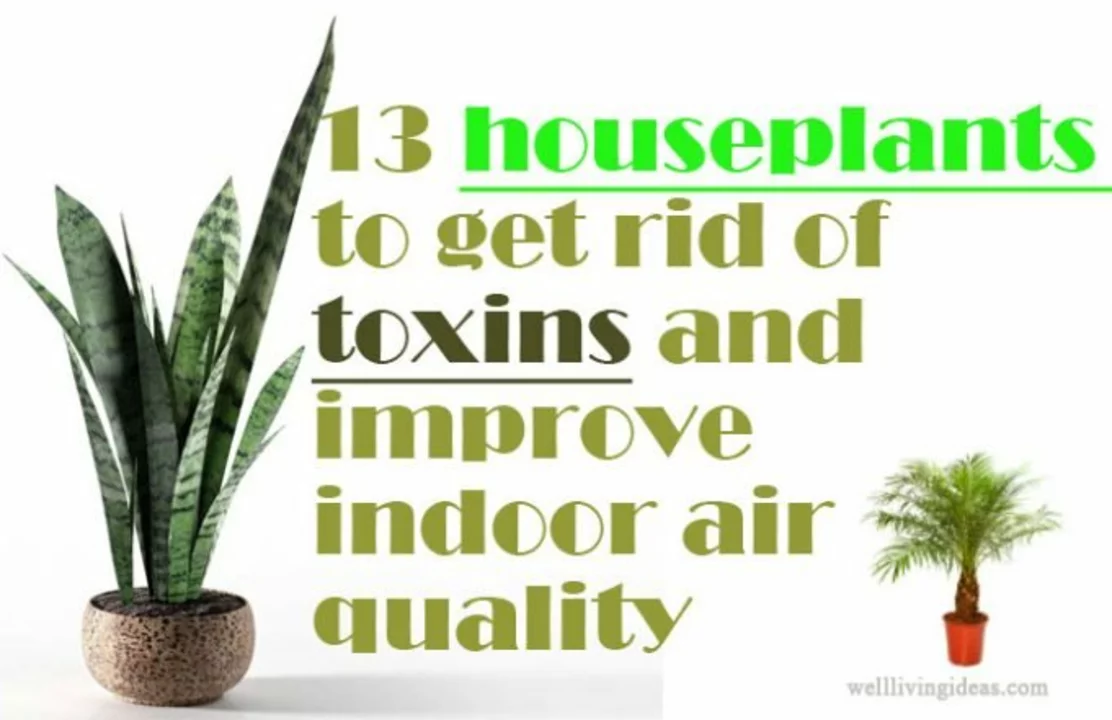Introduction: The Connection Between Asthma and Indoor Air Quality
As someone who has been living with asthma for years, I know how important it is to maintain a healthy indoor environment. Asthma is a chronic lung disease that affects millions of people worldwide, and poor air quality can exacerbate symptoms such as coughing, wheezing, and shortness of breath. One effective way to improve indoor air quality is by incorporating certain plants into your living space. In this article, I will share five types of indoor plants that can help improve air quality and potentially alleviate asthma symptoms.
1. Spider Plants: Natural Air Purifiers
Spider plants (Chlorophytum comosum) are one of the most popular indoor plants, and for good reason. Not only are they low-maintenance and easy to grow, but they are also known for their ability to purify the air. According to research conducted by NASA, spider plants are effective at removing common indoor air pollutants such as formaldehyde, benzene, and carbon monoxide. These pollutants can trigger asthma symptoms, so having a spider plant around can provide some much-needed relief.
Additionally, spider plants are excellent at increasing humidity levels in your home. Dry indoor air can irritate the airways and exacerbate asthma symptoms, so maintaining adequate humidity is essential for those with asthma. By placing a few spider plants around your home, you can help create a healthier environment for your lungs.
2. Peace Lilies: Combatting Mold and Mildew
Peace lilies (Spathiphyllum spp.) are beautiful flowering plants that can also help improve indoor air quality for asthma sufferers. One of their most notable features is their ability to absorb mold spores and other allergens through their leaves. Mold and mildew are common triggers for asthma symptoms, so having a peace lily in your home can help reduce your exposure to these irritants.
Peace lilies are also effective at removing harmful volatile organic compounds (VOCs) such as formaldehyde, benzene, and trichloroethylene from the air. These VOCs can be found in many household products and materials, and exposure to them can cause respiratory issues for people with asthma. By adding a peace lily to your indoor space, you can create a cleaner, healthier environment for your lungs to breathe.
3. Snake Plants: Oxygen Boosters
Snake plants (Sansevieria spp.), also known as mother-in-law's tongue, are another excellent choice for improving indoor air quality. Like spider plants and peace lilies, snake plants are effective at removing harmful pollutants from the air. However, they have an additional benefit: they release oxygen at night, unlike most plants which release oxygen during the day.
Increased oxygen levels at night can help promote better sleep, which is particularly important for people with asthma. A good night's sleep can help improve overall lung function and reduce the risk of asthma attacks. Placing a snake plant in your bedroom can help create an oxygen-rich environment that supports restful sleep and overall respiratory health.
4. Boston Ferns: Natural Humidifiers
Boston ferns (Nephrolepis exaltata) are another great option for those looking to improve indoor air quality and alleviate asthma symptoms. These lush, leafy plants are particularly effective at increasing humidity levels, which can help soothe dry, irritated airways. As I mentioned earlier, maintaining adequate humidity is crucial for those with asthma, as dry air can worsen symptoms.
Boston ferns are also known for their ability to remove pollutants such as formaldehyde, xylene, and toluene from the air. By incorporating a Boston fern or two in your living space, you can create a more comfortable and healthier environment for your lungs to breathe.
5. Aloe Vera: A Healing Plant for Your Home
Aloe vera (Aloe barbadensis) is a versatile plant that is not only beneficial for your skin but also for your indoor air quality. Aloe vera has been found to effectively remove formaldehyde and benzene from the air, two common pollutants that can irritate the respiratory system and trigger asthma symptoms.
Aside from its air-purifying abilities, aloe vera is also known for its anti-inflammatory and soothing properties. Keeping an aloe vera plant in your home can provide a natural remedy for minor burns, cuts, and skin irritations. This multi-purpose plant is a valuable addition to any home, especially for those looking to improve air quality and support respiratory health.
In conclusion, incorporating indoor plants such as spider plants, peace lilies, snake plants, Boston ferns, and aloe vera into your living space can help improve air quality and potentially alleviate asthma symptoms. As an asthma sufferer myself, I can attest to the benefits of having these plants around. Not only do they add beauty and life to my home, but they also contribute to a healthier environment for my lungs to breathe. Give these plants a try and see the difference they can make in your indoor air quality.


Write a comment